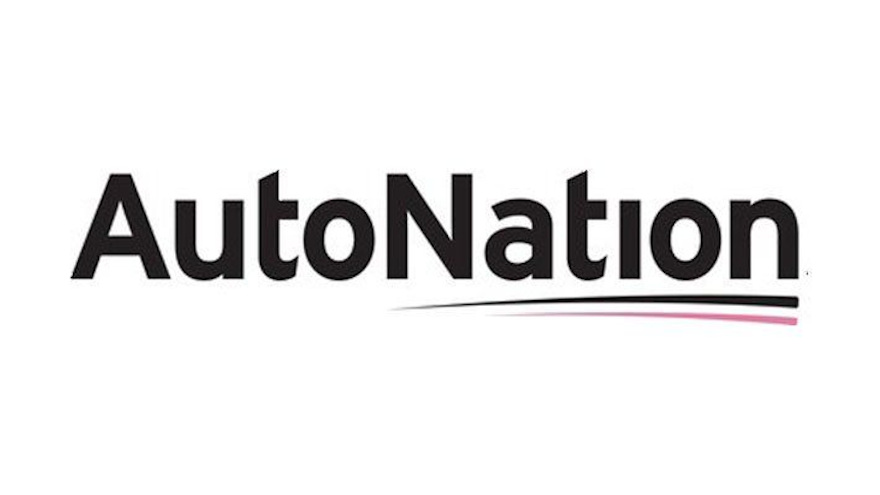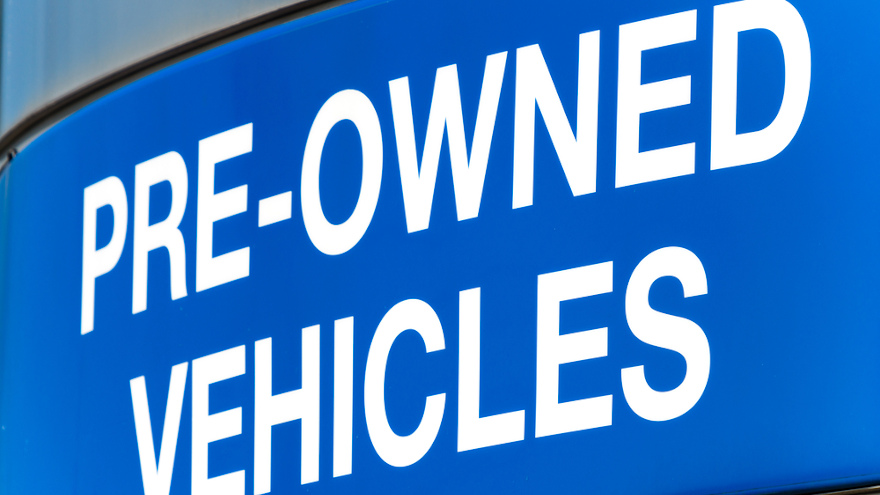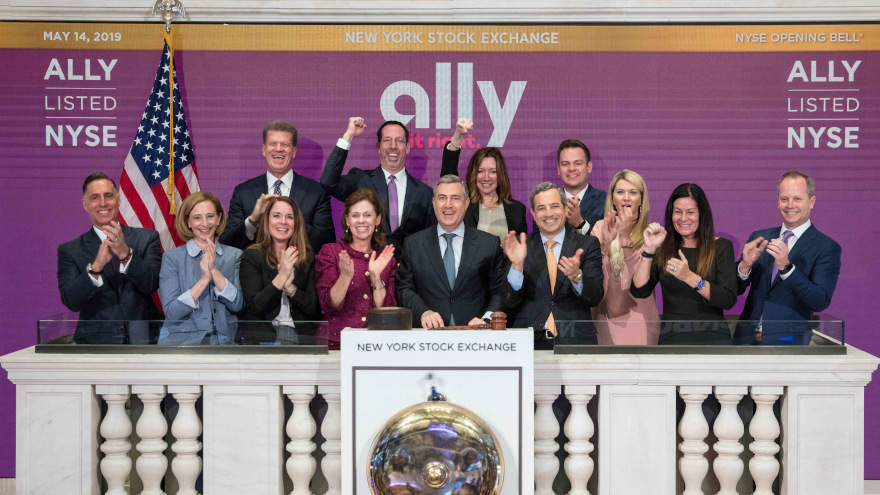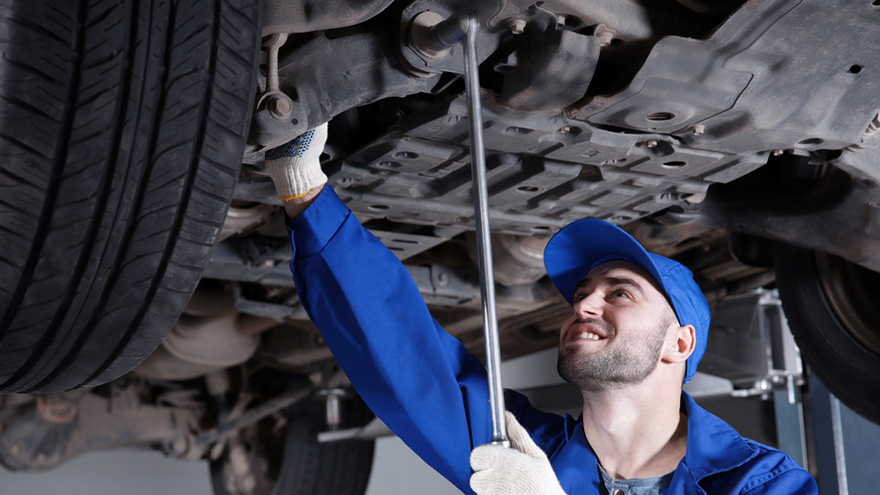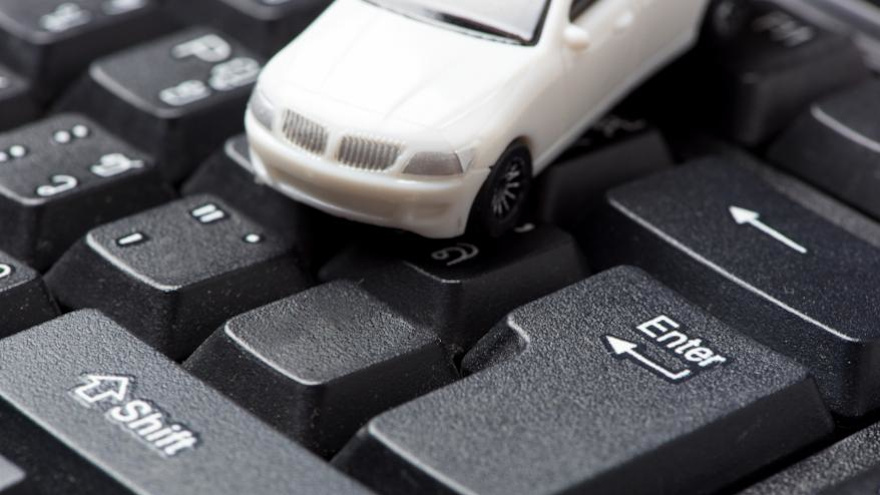The second top-level executive move involving AutoNation this month happened on Wednesday morning as the dealer group said executive vice president and chief operating officer Jim Bender has been appointed as president and chief operating officer.
The action arrived 10 days after the AutoNation’s board of directors granted the request of Cheryl Miller, chief executive officer and president of the company, for a leave of absence for health reasons. That day the dealer group’s board had appointed Mike Jackson, its executive chairman, to serve in the additional positions of chief executive officer and president until Miller returns, according to a filing with the Securities and Exchange Commission
And back on April 2, AutoNation said in another SEC filing that in an attempt to mitigate the financial impact of COVID-19, the company placed approximately 7,000 employees on unpaid leave, implemented temporary base pay reductions for associates and froze all new hiring.
AutoNation said it also reduced advertising expenses by approximately 50% for the second quarter, significantly reduced discretionary spending and postponed more than $50 million of capital expenditures through Q2.
Despite those headwinds, Jackson praised Bender’s background and abilities to handle management tasks during these challenging times since Bender has held several key leadership positions within AutoNation for more than 20 years and has implemented past successful initiatives that have resulted in record-breaking results.
“We are pleased to announce the promotion of Jim Bender. Jim is an outstanding leader, with a wealth of knowledge and proven track record of success,” Jackson said in Wednesday’s news release.
“Jim continues to drive the day-to-day execution at our 325-plus locations from coast-to-coast,” Jackson continued. “Jim ensures that our associates our delivering a peerless experience for our customers, one at a time.”
I, like you, have been reading numerous articles about fear gripping the automotive industry. Thanks to the coronavirus pandemic, fear is running rampant. Fear has gripped our industry and many other industries right now, and the last time I checked, fear has never led to positive outcomes.
It’s very easy to get caught up in news cycles and focus only on the negative. But at all costs, we must resist this tendency because it stifles our ability to think rationally. It also perpetuates more fear, which in turn paralyzes us. As entrepreneurs, we need to focus on the solutions and opportunities, understanding that “this too will pass."
Yes, there is a pre-owned vehicle glut right now. We know leases are being extended by lenders which will exacerbate the off-lease supply problem in the coming months. Auction yards are packed and dealers’ inventories are bloated. There’s simply not enough demand to alleviate the problem — today.
Consider this. We have never seen the Federal Reserve more involved or proactive than what we’ve witnessed over the last six weeks. Trillions of dollars are being injected into our economy and markets at record speed. Payrolls are being backed so employees aren’t laid off. Those that are being laid off are receiving unemployment checks with a $600 per week bonus. Those making under $50,000 per year actually make more money by taking unemployment benefits than they would on the payroll.
I’m sure you’ve all heard the Wall Street quote, “Don’t fight the Fed.” Well, it’s true.
With the Payment Protection Program and other stimulus, my sense is that we could come out of this quickly as the restrictions begin to lift. Look for another “Cash for Clunkers” program too. During the Great Recession, Uncle Sam paid people to trade in old cars for new ones. The program was very successful as $3 billion of stimulus generated $14 billion of sales. Morgan Stanley believes $10 billion will be provided this time and it will generate $50 billion in sales.
Here are eight reasons for pre-owned optimism:
1. Interest rates are basically at 0%.
2. OEMs and lenders are offering fantastic incentives
3. Factory shutdowns will result in a short new-car supply and demand will quickly shift to nearly new.
4. Gas prices are at lows we’ve not seen in decades, which will drive truck and SUV sales.
5. People have not been able to take vacations, go shopping, out to dinner. If they’ve been able to maintain a relatively stable level of income, they will have money to spend.
6. Demand for ridesharing and rentals will wane as people will feel safer in their own vehicle.
7. A “Cash for Clunkers” type program could stimulate $50 billion of sales.
8. President Trump is announcing the government’s guidelines on opening states.
The Manheim Retention Discount is reflecting about an 8-10% discount from MMR, which looks to be accurate. Right now, there aren’t enough online buyers to support the supply, which skews the numbers dramatically. I’d argue prices will stabilize as soon as states begin to lift the restrictions. It’s apparent that some states will open before others, which represents an opportunity for operators where restrictions have lifted.
My assumption is they’ll not only be buying at their local auctions, but looking for bargains online where “shelter in place” is still in effect.
I encourage our at-large dealer family to look forward and take heart. Don’t get caught up focusing on the negatives of today; instead, strategize your business for reopening. That’s certainly what we’ve been doing at CarOffer. We’ll be introducing new programs that will help dealers recover much faster and support resiliency. All of us are facing the same challenges but we will overcome. We’ll have a greater appreciation of our freedoms and health, and we’ll have a renewed perspective of the truly important things in life.
Bruce Thompson is the founder and chief executive officer of CarOffer.
Predictive analytics and marketing automation company automotiveMastermind has partnered with a video communication company to implement a video feature that Mastermind says will help dealership sales teams personalize their communications with consumers.
automotiveMastermind, part of IHS Markit, has partnered with Covideo to create a new product feature that helps dealerships connect with customers during coronavirus disruptions.
With Covideo, users can create personalized, one-to-one videos to send to customers through various platforms. Covideo also provides real-time notifications, engagement metrics and detailed reporting.
“Video Messenger,” which went live on Tuesday, is a Covideo-powered feature that will live directly within Mastermind's automotive sales platform, Market EyeQ.
On the platform, dealerships already have access to all publicly available current and prospective customer data in their markets. Mastermind says that sending a personalized video from the same platform where dealerships can access all customer data will result in a smoother and more seamless workflow.
“Providing the best support possible to our dealership partners is always our number one priority at Mastermind, but with dealerships' current hardships, we’re laser-focused on finding innovative solutions to help them drive sales,” Mastermind co-founder and chief executive officer Marco Schnabl said in a news release.
Schnabl continued, “Video Messenger will help dealership sales teams personalize their communications with consumers, providing immense value and a much-needed human connection. We appreciate the Covideo team for partnering with us to help dealerships support their communities during the coronavirus crisis and beyond.”
Dealer partners using the Video Messenger feature can have sales reps record personalized videos.
Those videos are sent directly through the Market EyeQ platform and delivered via email.
The recipient will receive a GIF in the email that links to the actual video hosted on an OEM-branded template.
“We’re confident our dealer partners who choose to use Video Messenger in Market EyeQ will see the benefit of how personalized messages will help build trust and loyalty with current and potential customers,” said Mastermind chief product officer Joe Kacala.
Kacala continued, “Since many dealerships have needed to close their showroom, a perfect use for Video Messenger is to send personalized videos to their customers, since car sales are largely relationship-based. This will really help dealers stand apart from their competitors during this time. We see immense potential for dealerships to use Video Messenger, and we encourage dealership sales team[s] to embrace video as a creative way to support customers now and once all showroom floors across the country are once again open for business.”
Covideo co-founder and chief executive officer Jason Price said businesses now more than ever should stay connected with their customers.
“And Covideo will provide that support to Mastermind’s dealership partners,” Price said.
Price continued, “Touchless doesn't have to be human less. One of the best parts of Covideo is it’s very easy to use, so dealership sales teams don’t have to worry about spending a ton of time on training. Integrating videos into their communications process through Market EyeQ will give dealerships a leg up on competitors who aren’t focused on personalized communication now or in the future.”
Jasen Rice, founder and chief executive officer for the used-car marketing and inventory analysis company Lotpop, is taking a contrarian position about certified pre-owned sales as the auto industry comes out of its COVID-19 mandated slumber.
"CPO is going to be the winner out of this," he said.
If, that is, the OEMs sufficiently incentivize certified pre-owned vehicles currently on dealers’ lots, he said.
"Dealers will need to move the off-lease cars their OEMs push to them to get them off their books and make room for an inventory mix that won't be so time-and-price sensitive," Rice said. "There will be buyers for these CPO cars if given incentives, attractive rates and terms to hold their values and move them."
In a recent weekly used-car State of the Union address, Rice said late-model used car volume would be in abundance post-COVID. As the residual values of those cars fall, residual values will "tumble" as well on off-lease 2017 to 2020 model-year cars.
He discussed these scenarios:
- CPO vehicles, which are highly susceptible to depreciation, do provide an attractive price-point difference between new-model options.
- OEMs who want to help their dealers move these cars at this time should waive CPO certification fees and offer buyers at least 0% for 60-month loans and 90-day deferred payments. Such an incentive will put CPO affordability within reach of more consumers who might have been furloughed during COVID and, as a result, had their creditworthiness deflated.
Rice believes delayed OEM new-car manufacturing will also favor CPOs on dealers' lots.
"OEMs may not start building new models until later in the year,” he said. “So, if they greatly incentivize CPO, this will help used-car values hold, the wholesale market will be active, and the used-car market will become stronger. In the meantime, as the economy comes back and people again become secure enough to buy new cars, the CPO will end up being the real winner in this.
"I would be prepared for that if you're not a CPO store now," Rice added.
Rice and Lotpop advisors spend considerable time looking at OEM and industry metrics, a reason for Lotpop's often prophetic insight into used-car market stocking, pricing, reconditioning and marketing advice to its dealer customers.
Looking back, there were 16 million new car sales in 2007; this number fell to 10 million during the' 08-'09 recession. It took about four years, until 2014, to rebound back to 16 million.
"We were, before COVID, selling around 17 million units,” Rice said. “I believe the economy will come back slowly once restaurants and other businesses reopen. Once that happened, it took four years to get new-car sales to 15 million. I hope we bounce back from our current market and get to 15 again within two to three years instead of the four it took from the end of the 2008 recession, if there are no big changes from the government.”
However, he does not see rebound again in the economy until the middle or end of May. From trending data examined for 2005 through 2020, Rice said May new-car sales outsell April's 87% of the time. By June, he believes, sales should reach 65% to 75% of last year's total new and used sales rates, if the economy is able to get going again in May.
“I'm hoping that trend will repeat itself for this May and June, meaning in July dealers are hitting in the 90% total new and used range, with August again a strong summer sales month," Rice said.
He advised dealers to use their time until then to train their teams to present and sell certified pre-owned differences and values.
More market trend and educational videos from Rice and Lotpop can be found on the company's YouTube channel. Rice will host his fifth Used Car Manager State of the Union call at 3 pm ET/2 pm CT on Wednesday. To listen, sign up here.
Based on the dynamics described in the most recent updates compiled by Black Book, used-car managers might have one of the most difficult industry jobs nowadays.
They’re seeing increased supply and decreased demand collide in the auction lanes, creating significant uncertainty about how to gauge trade-in values.
“Sellers that focus on cheaper units are hopeful that the arrival of stimulus checks that were deposited in many American’s bank accounts last week will generate additional sales,” Black Book said in its newest weekly COVID-19 market update.
“We have heard repeatedly from dealers recently about their hesitancy to put a value on a trade-in that is not part of their core inventory,” Black Book analysts continued. “There is a concern that if a dealer numbers a vehicle that they have not traditionally stocked, they might get ‘stuck’ with it and lose money in a depreciating market, therefore, making it not risk-worthy.
“In some cases, small dealers are missing out on new sales if they can’t find a fellow dealer or wholesaler that will agree to purchase the trade-in from them immediately,” analysts went on to say.
As auctions slowly ramp up sales activities, the prices fetched for vehicles continues to soften, according to the latest Black Book Market Insights report.
Based on volume-weighted data, Black Book indicated overall car segment values decreased by 1.40% this past week, marking the fourth consecutive week of large depreciations and pushing the four-week average drop to 1.02%.
In fact, Black Book said this past week produced the largest depreciation for the car segment in at least the past two years.
“The premium sporty car segment was the only segment to have smaller declines as the specialty and collector units don’t appear to have their demand falling as sharply,” analysts said.
Meanwhile, Black Book’s volume-weighted truck information showed that overall truck segment values — including pickups, SUVs and vans — decreased by 1.00% last week. Analysts pointed out the drop constituted the largest week-over-week decline for trucks and SUVs since December.
“As we saw in the 2008 recession, the full-size van segment is only slowly depreciating each month as the low supply alleviates some of the pressure that the other segments are experiencing,” analysts said.
Overall, Black Book reported that online bidder attendance has been relatively strong at digital sales, but the number of active bidders is low. Analysts emphasized the demand to purchase right now is low, but many buyers are still watching each week in hopes of finding a “steal.”
Black Book vice president of automotive valuations Laura Wehunt said, “Sales rates have shown a small improvement as some auctions have re-started their digital sales, but to the detriment of retention. This past week, we saw values really begin to fall as the increasing supply and limited demand pushed values down.”
Black Book’s representatives watching those online sales and online activities reinforced Wehunt’s assessment. Here is the latest rundown from five different locations:
— From Florida: “The cars and trucks under $11,000 sold well today.”
— From Illinois: “Right from the start this seemed like it was going to be a good sale. Bidding was active, vehicles were selling, and buyers were stepping up when bids did not reach the floor.”
— From New Jersey: “There were 40-plus buyers online, but only four were active so most were there just to get a feel for the market.”
— From South Carolina: “This week, we had a conversion rate of roughly 40%, compared to 28% last week. The $8,500 and under vehicles were the ones selling.”
— From North Carolina: “I’m currently only selling about 25% of my typical volume for this time of year.”
One other note from the latest Black Book updates. And it’s connected with all those challenges faced by used-car managers mentioned previously.
“Storage space is the newest challenge facing auctions,” Black Book said. “There are auction locations where inventory is starting to stack up as no-sales are still dominating the lanes and leases expirations are being turned in.
“Many auction houses are looking for additional land to accommodate the overflow of standing vehicles,” Black Book added.
April will end up with the largest-ever year-over-year decline in the Manheim Used Vehicle Value Index, should current price trends remain on track.
Manheim parent company Cox Automotive debuted its first mid-month edition of this index that measures wholesale vehicle price activity on Friday and found that the Manheim index is at 125.2 halfway through April, down 9.6% compared to the first half of April 2019.
“If the mid-month value of the Manheim Index holds for the full month, the monthly decline will set a record,” Cox Automotive said, noting the 5.5% drop in November 2008 amid the Great Recession, which currently is the largest drop in the index.
Compared to March, wholesale prices in the first half of April are down 11.8%, Cox Automotive said.
Used-car prices are facing a one-two punch from weakening demand and supply “piling up,” as CarGurus director of automotive industry and economic analysis George Augustaitis illustrated in a blog post Friday.
“While there are still consumers buying cars out of necessity, such as replacing a broken-down vehicle or a lease ending, overall demand in the market has declined,” Augustaitis wrote.
“This decrease in demand is causing the supply of used vehicles, both at the auction lanes and on dealer lots, to rapidly pile up and vehicles are left sitting. While dealers that are deemed ‘essential’ can still sell vehicles, those whose doors have remained temporarily closed are not moving any used inventory.”
Such simultaneous supply and demand curve changes have driven used-vehicle prices down significantly, a downturn that could last “for the foreseeable future,” he said.
However, there is some precedent for such declines.
“This is not the first time used vehicle valuations have declined. In 2008 and 2009, the supply for used vehicles outpaced the demand, which caused a drastic decline in prices. As the economy recovered, people went back to work, consumer confidence returned and these both helped increase the demand for used vehicles,” Augustaitis wrote.
“As the influx of demand quickly outpaced the supply, used vehicle values rapidly increased,” he said. “While the COVID-19 recession is not the same as the 2008 recession, the patterns are similar and we will eventually see the demand return — and a rebound in used-vehicle valuations will come with it.”
Over at J.D. Power Valuation Services, which measures the wholesale market based on vehicles up to 8 years in age, analysts said Thursday they are expecting a 7% decline in used-vehicle prices through June.
The recovery would then begin in the second half.
“The outlook is centered on macroeconomic projections that remain highly fluid,” Jonathan Banks, their vice president of vehicle valuations and analytics, said in the analysis. “A major factor will be the national employment picture.“Our models assume that significant job losses will continue through the second quarter but will then be followed by a gradual recovery in the second half of the year,” Banks said. “Our forecast has prices falling by 2% on a full-year basis versus 2019.”
Wholesale prices for the week of April 6-12 were down 2.5%, a similar decline to the prior week, J.D. Power said.
Used retail prices are faring a bit better, though. They were down only 1% week-over-week, Banks said.
“The difference in wholesale and retail price performance is due in large part to a disparity in sales activity,” Banks said. “While both have been significantly disrupted, franchise dealers’ used vehicle sales were approximately three times greater than wholesale sales over the past four weeks.”
There were 19,000 wholesale auction sales the week ending April 12, according to J.D. Power Valuation Services. That’s up from 17,900 auction sales the week ending April 5.
*Clarification: J.D. Power Valuation Services had reported earlier this month that the week ending April 5 had fewer than 15,000 auction sales, which would have marked a record, news that was reported in Auto Remarketing.
However, the company explains that it receives lagging sales data each week that impacts previously reported figures. So, the less- than-15,000 figure was updated to 17,900 in the latest data.*
“It was encouraging to see wholesale auction sales hit 19,000 units during the week ending April 12. It represented a 7% rise over the prior week’s paltry 17,900 units,” Banks said. “It was not enough, however, to stem the downward trend on wholesale prices.”
There was an 80% drop in wholesale sales during the first two weeks of the month, both in terms of a year-over-year comparison and against pre-pandemic projections, J.D. Power said.
And since mid-March, there have been fewer than 130,000 wholesale sales, the company said.
“All in all, we have seen a decline of 300,000 units — or 70% — against our pre-virus volume forecast, which is having a detrimental effect on valuations across the board,” Banks said.
The changing wholesale market dynamics around and pricing and volumes certainly impact consignors in the auction market, too.
During the company’s recent earnings call, Ally Financial chief financial Jennifer LaClair described the “wait-and-see” mode consignors like Ally are facing.
“It’s a really important area that we’re focused on as you think about our leasing yields and our remarketing gains. What we’re seeing right now is essentially the market is illiquid, and that’s the physical auctions as well as the digital auctions,” LaClair said.
“It’s just really hard right now to determine what fair pricing is. We were guiding towards a negative 5% to 7% in used-vehicle prices. It could potentially go down from there, but it’s just very difficult to know at this point,” she said. “We’re a bit in wait-and-see mode, and we think we’ll have a much clearer sense of used-car prices once shelter-in-place orders are lifted and auction activity can resume at more normal levels.”
LaClair said the lease extensions Ally is offering consumers is helping regulate some of the supply as it relates to demand.
“We think that overall positions the market to be stronger, as well. But it’s a really important focus area for us, and I think this is one of those areas to be determined as we go through the next couple of quarters,” she said.
As the company’s chief executive officer shared his five broad perspectives about the ongoing economic crisis created by the coronavirus pandemic, Ally Financial also offered more details about how it’s worked with dealer clients.
During the company’s quarterly conference call with investors on Monday morning, Ally Financial chief financial officer Jennifer LaClair said 72% of dealers that have a commercial relationship with the company are using some form of relief it has offered like deferred payments.
Furthermore, LaClair noted that Ally participated in the Paycheck Protection Program orchestrated by the Small Business Administration and created by the CARES Act. She mentioned Ally funded “essentially all applicants,” representing more than $850 million in loans before the total amount of available federal funds expired last Thursday.
“The whole intention here is really to focus on the controllables, focus on keeping our market strong, our customers strong, and we believe that’s going to position us very well on the back end of this crisis,” LaClair said.
“Managing credit risk remains a top priority for us, and we know you’re focused on this topic, as well,” LaClair said later during Ally’s conference call when the company also revealed its first-quarter performance. “While we are not yet seeing deteriorating impacts on our credit performance. We’ve already adjusted our servicing strategies real time, including the roll-out of augmented staffing capacity, increased customer outreach and enhanced digital engagement.”
Despite the recent activity to help dealership’s Ally’s commercial portfolio has decreased during each of the past five quarters. The company finished Q1 with its average commercial balance sitting at $30.5 billion with $25.1 billion constituting dealer floorplan commitments. Those figures are down from the close of 2018 when Ally said they stood at $36.6 billion with $30.8 billion being in the floorplan category.
Meanwhile as far as originations in connection with retail vehicle sales, LaClair pointed out that dealership application and funding volume declined more than 50% as March unfolded when shelter-in-place orders took hold nationwide. All told, Ally reported that its Q1 auto originations came in at $9.1 billion, sourced from 3.0 million applications, figures on par with year-ago performances.
LaClair insisted that Ally is ready when activities accelerate again.
“Over time as the economy improves, we will be positioned to act swiftly on opportunities, including a potential increase in demand for use, prudently stepping in where others may have exited, providing adaptable solutions as we did with the expanded Carvana flow program and the SBA product launch for our dealers,” LaClair said.
View from the CEO
Ally reported that its auto-finance business posted a pre-tax loss of $173 million, down $502 million year-over-year, primarily due to higher provision for loan losses associated with reserve build given COVID-19 forecasted macroeconomic changes.
As an entire company, Ally said total Q1 net revenue softened 12.1% year-over-year to land at $1.41 billion, resulting in the company sustaining a $411 million net loss compared to the opening quarter of 2019.
Included with all of the quarterly figures, Ally chief executive officer Jeffrey Brown shared five different perspectives about the company’s situation and the U.S. economy. They included:
1. Environment is challenging, and unlike anything encountered
2. We recognize considerable uncertainty will remain for period of time and it remains difficult to predict when confidence will return
3. Ally will continue to rely on our values and strong culture. We will ‘Do It Right’ for our customers and teammates. Consistent approach will drive long-term shareholder value
4. Ally entered the current environment operating from a position of strength — strong capital and liquidity, investment grade ratings, proven deposit gatherer and scaled deposit and auto businesses
5. Near-term headwinds are tough, but will not disrupt Ally’s long-term strategy
“The sudden and severe nature of this shutdown has affected the world and our nation in a manner that has arguably never been replicated on a scale of this magnitude. It is within this context that I think it’s important to acknowledge that significant action across public and private sectors is necessary and should continue on a size and scale that has not been seen in modern history to directly address the outbreak that is already having negative impacts on workers, consumers, and citizens across America,” Brown said during Monday’s call.
“While some positive trends are emerging in regard to the spread of the virus, we still do not know how long it will take to return to a state of normalcy,” Brown continued. “At Ally, you’ve heard throughout our remarks this morning and as long as I’ve been in the chair, we are relentlessly focused on our customers. We’ve built a strong and vibrant culture around this mantra, and today we’re even more emboldened to act in accordance with these principles. This provides clarity for our customers and purpose for our teammates in a time of great uncertainty, and we are confident it will ultimately drive long-term shareholder value.
“We enter the current environment with a strong, well-positioned balance sheet with funding, capital and liquidity positioned to serve as sources of strength,” he added. “We’ve grown our auto and deposit offerings into dominant, adaptable franchises ready to continue delivering for our customers, while actively seeking new opportunities to expand. The headwinds we will experience in the near term, while admittedly challenging, will not impact our ability to deliver on our long-term strategies and vision.
“Over the past several years, the strong foundation we’ve built has allowed our company to thrive during economic expansion and positions us now to be a source of strength for all of our key constituents during this difficult time and when we begin to recover,” Brown went on to say. “Remaining disciplined in our customer focus and true to our values will allow us to emerge from this period stronger than before, resuming the trajectory of both financial and operational improvements we’ve delivered the past several years.”
Traffic trends from online automotive marketplaces are seeing nice lifts.
Autotrader had close to 11 million visitors the week of April 6, up from less than 9 million a year ago, according to a Data Point report from parent company Cox Automotive. While visitor count fell between the weeks of March 2 and March 16 on Autotrader, levels for the week of April 6 were stronger than where they were in early March.
Autotrader’s Vehicle description page views approached 26 million that first week of April, up from less than 24 million a year ago. Again, while they fell between the weeks of March 2 and March 16, VDPs are now above where they were at the outset of March.
Then, there was a 14% week-over-week hike in visitor traffic the weekend of April 10-12, with VDP views climbing 17%. On April 12, visitor traffic and page views on Autotrader were at their strongest point in a year.
“We know that across the industry, sales are down, of course, but what we're measuring are the leading indicators here,” said Jessica Stafford, who is vice president and general manager for those online marketplaces at Cox Automotive, in a phone interview Tuesday. “(On) Autotrader and Kelley Blue Book, our shopping activity is actually through the roof.
“On Autotrader, we're seeing over 20% increases in traffic year-over-year right now,” Stafford said. “So, big-time traffic numbers. Higher than what we saw pre-pandemic.”
At Cars.com, total visits were up 10.3% week-over-week during the ending April 12, with organic visits up 11.3%, according to this blog post from fellow CARS company Dealer Inspire. Interestingly enough, total leads were up 22.8% and organic leads were up 25.4%.
So, why would leads be climbing more than twice as fast visits?
“The intent of the shopper is much different. When someone's submitting a lead, I think they're pretty serious about purchasing — not that they weren't before,” said Dealer Inspire chief executive officer Joe Chura in a phone interview on Thursday.
“But you can just see in the numbers the percentage of close rates on leads is up substantially,” Chura said. “And that is because there is more work to do in some ways for a consumer to buy a vehicle.
“They have to either take delivery at their house (or) they can make an appointment at a dealership,” he said. “But it’s a pretty serious thing when you are submitting a lead and you are going to transact. It's not like you have the ability now to go and test drive vehicles and hop from dealer to dealer.”
As such, Chura urges dealers not to take those leads for granted. Capitalize on the fact that they have high intent right now.
“Do not take for granted the leads that are coming in, because the intent of these customers is much greater, much different than it was 60 days ago or so,” he said. “There's less shopping dealer by dealer and there's more consumers that truly want to transact, therefore giving them the tools upfront to let them explore as much as possible, whether that be payments on a certain vehicle, their trade-in valuations, what they're total out-of-pocket expenses are, what their total amount financed is, what available lease offers there are, all of those are really important so make sure your website communicates those properly.”
Dealers are also tapping into tools that can help facilitate smoother digital transactions.
In late March, Autotrader rolled out what it calls Dealer Home Services to give dealers an easier, healthier way to transact digitally amid the pandemic. This helps dealers facilitate “no contact” vehicle transactions through three new features: virtual walk-around, test drives from home and local vehicle delivery.
Autotrader is looking at how consumers are interacting with these tools to gauge whether or not they’re just browsing or making serious buying steps.
“And what we’re seeing is they're engaging with these three tools that now are part of that Dealer Home Services that we've put on the site. They're filtering and they're submitting leads to dealers, saying, ‘I want local home delivery; I want a virtual tour of the vehicle,” Stafford said. “And the best way we've been able to measure the difference there of the consumer engagement and, of course, the value back to the dealer is that dealers that have Dealer Home Services enabled are seeing 10% more leads than those that don't have it enabled.
“These dealers that have turned on this suite of services are actually seeing lead levels the same as what it was pre-crisis," she said. “What that tells us is that overall, consumers are happy with the experience, but more so than that, they're engaging, they're looking for this content. They're asking for information about what dealers are doing for them right now.”
Citing data from a Cox Automotive study, which was released during the pandemic, Stafford said that more than two-thirds of consumers want to purchase vehicles entirely online, “and that they anticipate that (consumers demanding this experience) continuing after COVID.”
Jai Macker, who is senior vice president of product and engineering for Autotrader and Kelley Blue Book and joined Stafford on the call, said it’s not just about the digital retail tools, but also vehicle comparison functions.
“Consumers in our study were two-thirds more likely to also utilize OEM sites, dealer sites and third-party sites to research online, and do comparisons,” Macker said. “Across the board, the expectation we have is that digital activity, all the way to purchase, will continue to increase.”
Recent Auto Remarketing reports chronicled the swift declines in wholesale activities at auctions and the softening of vehicle retail sales at dealerships.
The data science team at Womply, a software and API company serving small businesses and app developers, looked to quantify the impact of COVID-19 on segments of the automotive industry that might be used by auctions, dealerships and related service providers. Womply dissected daily data analysis of transaction trends year-over-year at 400,000 local businesses across the country, including 30,000 auto services operations.
Womply discovered these auto services businesses are sustaining significant decreases. Here are the firm’s year-over-year comparisons as of Thursday:
Auto parts and supply shops
• Weekly revenue at local auto parts and supply businesses is down 32% year-over-year.
• Last week was their worst revenue week of 2020.
• Nine percent have stopped transacting entirely.
Auto repair and maintenance
• Weekly revenue at local auto repair and maintenance businesses is down 41% year-over-year.
• Last week was their worst revenue week of 2020.
• Eight percent have stopped transacting entirely.
Auto wash and detail
• Weekly revenue at local auto wash and detail businesses is down 48% year-over-year.
• The week of March 16 was their worst revenue week of 2020, when weekly revenue was down 53% year-over-year.
• Twelve percent have stopped transacting entirely.
Gas stations
• Weekly revenue at local gas stations is down 48% year-over-year.
• Last week was their worst revenue week of 2020.
• Four percent have stopped transacting entirely.
Tire services
• Weekly revenue at local tire services businesses is down 39% year-over-year.
• Last week was their worst revenue week of 2020.
• Seven percent have stopped transacting entirely.
Towing and roadside assistance
• Weekly revenue at local towing and roadside assistance businesses is down 47% year-over-year.
• Last week was their worst revenue week of 2020.
• Seven percent have stopped transacting entirely.
Womply’s ongoing data analysis is available here.
Predictive analytics and marketing automation company automotiveMastermind is re-deploying sales and business development managers to prospect on behalf of dealer partners.
The company said the move demonstrates its support and commitment to dealerships during the COVID-19 crisis.
automotiveMastermind said the virtual business development center program is currently piloting with 215 U.S. stores.
The company announced the following results from the program:
— 339 hours worked on behalf of dealer partners
— 283 sales follow-ups and virtual appointments booked
“Never have we seen the ongoing support from a vendor partner as we are experiencing from automotiveMastermind,” Tysinger Automotive Family vice president Robert E. Rombs Jr. said in a news release.
Rombs continued, “The virtual BDC has proven to be an invaluable asset, as we have booked five additional sales appointments in just the first two sessions. We are confident in our ability to be successful and to emerge stronger than ever as a direct result of our partnership with automotiveMastermind.”
automotiveMastermind said its industry experience and the integrated nature of the company’s Market EyeQ sales platform helped inspire the idea of creating a virtual business development center program.
With Market EyeQ, each of Mastermind’s remote team members have access to the same data-driven customer insights as their dealer partners.
That, according to the company, makes the process of prospecting and handoff “seamless even from afar.”
“We’re a team of passionate auto industry experts, so the decision to create a virtual BDC for our dealer partners during this particular time was a no-brainer,” Mastermind co-founder and chief executive officer Marco Schnabl said in a news release.
Schnabl continued, “Since the beginning of the COVID-19 challenges, we’ve encouraged our dealer partners to pivot their operations, including remote sales and maximizing their BDCs. We practice what we preach, and serving as an extension of our customers’ BDCs is a critical way we can support them.”
Mastermind says it has developed numerous resources in addition to the virtual BDC to support dealerships during COVID-19 disruptions.
Those include Mastermind’s Virtual Resource Center, which features whitepapers, checklists and videos to help dealerships pivot operations and make sales and service adjustments to accommodate for challenges due to COVID-19.
Free webinars from Mastermind’s thought leaders are another resource, including topics such as maximizing the service drive, creating a virtual dealership and how to kickstart auto leads during and after COVID-19 disruptions.
Another resource: Mastermind Gives Back to the CDC Foundation. Mastermind is donating $25 per virtual demo and $100 per deal signed to the CDC Foundation through April 30.
Mastermind is regularly creating new COVID-19 resources for dealerships. The full, free resource library is available at www.automotivemastermind.com/covid19.

